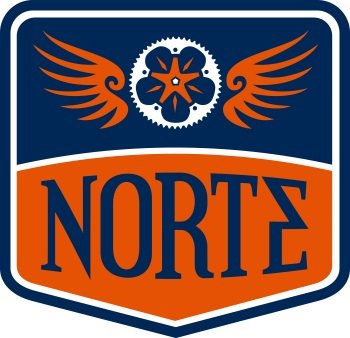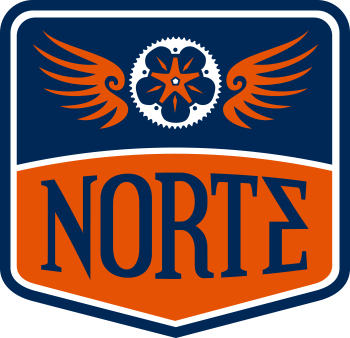Joining a Nonprofit Board of Directors: What to Know, What to Ask
Investing your time and expertise in a nonprofit organization you care about is exciting. Many nonprofit board members start out as volunteers or donors before eventually getting involved with a board role. Serving on a nonprofit board is a mutually beneficial relationship that facilitates learning, growth, and opportunities—interested in joining a nonprofit board? Learn what questions to ask, what to expect, and explore more ways you can positively impact the causes you care about.
Related: Meet Norte's Staff and Board
What Does a Nonprofit Board Do?
Most nonprofits require a board of directors in their organization's by-laws. Boards can range from three to fifty members and may include any number of restrictions, including term limits or the person's history with the nonprofit. Board members are not full-time employees, and while some organizations may allocate stipends or expenses, the position is non-remunerative.
Why Are Nonprofit Boards Important?
Nonprofit boards provide high-level strategic direction and oversight to keep the organization growing and true to its founding mission and values. Boards are usually comprised of passionate individuals from the community and serve many functions, including:
Fundraising support
Networking and community connections
Professional skills (accounting, technology, etc.)
Strategic guidance
Access to volunteers
Common Board Roles
Boards can take on many roles and functions based on the nonprofit's industry, cause, or direction. There are three roles these bodies always have filled – in fact, most require these positions to be filled within the nonprofit's by-laws.
Board President – The President is the designated leader of the board and drives everything from meeting agendas to creating board committees. Most Board Presidents have served in other roles on the board previously or have a long-standing relationship with the nonprofit. The organization's Executive Director can sometimes serve as the President, though they are very different positions.
Secretary – Board Secretaries keep minutes, file paperwork, and provide vital record-keeping support to minimize knowledge loss within the organization. The Secretary is often tasked with regulatory oversight and adherence to internal by-laws.
Treasurer – The Board Treasurer is responsible for the organization's financial health. They may be responsible for tracking expenses, accounting, and budgeting. The treasurer works closely with the Executive Director and main accounting contact to keep accurate records and maintain a healthy balance sheet.
Big Picture Thinking vs. Day-to-day Operations
Boards are primarily responsible for governance and oversight. They focus on the organization's overall direction and tend to think in years or decades. A nonprofit's core staff is accountable for the day-to-day tasks associated with running a nonprofit, such as outreach or programs.
The Benefits of Joining a Nonprofit Board
Lending your time and talents will make your chosen nonprofit a stronger organization. Charitable groups need fresh ideas and enthusiasm to grow and succeed, and the support of a full, engaged board delivers all those ingredients. Of course, board members benefit, too.
Build Leadership Skills
Serving on a nonprofit board provides valuable leadership experience, especially if you volunteer to lead a committee. Use the time to practice leadership techniques, ask for feedback, and experiment with new ways to motivate people.
Gain New Perspectives
While many board memberships are business owners, executives, or directors, that isn't always the case. Joining a nonprofit board helps you see an organization through the eyes of a CEO and all the strategic thinking that goes along with making important decisions. Even experienced professionals benefit from the perspectives of others.
Find Out What You're Good At
Young professionals with talent are often siloed on specific projects in their careers. Volunteering your time as a board member gives you a chance to explore other skills or tasks that you're better suited to or more interested in. Learning what you're not interested in and avoiding that work in future board positions or your daytime role can be just as valuable.
Grow Your Network
From new friends to possible business contacts, nonprofit boards are great places to meet like-minded professionals with shared interests. These relationships can lead to lifelong mentors who are quick to provide advice or suggest new opportunities.
Characteristics of an Effective Board of Directors
Nonprofit boards are responsible to the core staff and those who benefit from the organization to invest real time and attention. The best boards are engaged, diverse, and resourceful, especially during tough times.
An engaged board member attends meetings, shows up prepared, and is ready to tackle specific challenges or opportunities facing the organization. Most boards meet monthly but spend several hours per week working on organizational needs, such as fundraising or attending events. Some organizations have mandatory attendance quotas which, if not met, result in the dismal of absentee board members.
A diverse board brings a broad spectrum of experiences, skills, and perspectives. Racial and gender-diverse boards are more productive and successful than non-diverse boards in the for-profit sector, and nonprofits likely benefit just as much. One of the most overlooked issues with boards is the average age; 84% of nonprofit board members are 40 or older.
A resourceful board leverages creative thinking to overcome substantial challenges. From budget shortfalls to changes in the nonprofit regulatory environment, board members must provide solutions to potentially damaging situations.
Three Questions to Ask Before Joining a Nonprofit Board
Before signing on, make sure it's a good fit. Talk to the current board president, board members, and meet with the Executive Director to get a feel for the organization's culture. Put yourself and the organization in a good position by asking these three questions.
1. What is your time or workload expectation?
Some organizations, especially younger nonprofits, need much more attention. Get a feel for how much time you'll need to invest weekly to be an effective contributor and ensure the work and meeting demands align with your schedule.
2. What is the biggest skill gap the organization has right now?
Find out whether you have the skills to match the board's needs. If there are already two accountants and you're a math whiz, your experience may be more valuable with another nonprofit struggling to make the numbers work.
3. What is the term length?
Most nonprofit boards require one or two-year terms. Find out how long your position is held and if there are any term limits included in the organization's by-laws. Find out how long other members have served and how positions are filled, if possible.
We Need Your Passion
Organizations like Norte rely upon engaged board members to provide a clear roadmap and direction. We have been fortunate to have incredibly smart individuals serve in the past, and we're always looking for the next generation of leaders to get involved. Ready to learn more? Get in touch today to meet with our current board president.

